https://www.lifegate.it/vandana-shiva-intervista
- |
- Vandana Shiva is an Indian scientist and activist who began her ecological battle in the 1970s against deforestation in India.
- He has always fought for the freedom of seeds and the rights of small farmers against multinationals, pesticides and GMOs.
- Contrary to the financialization of Nature and biodiversity credits, it calls for solutions starting from the "laws" of the Earth.
We interviewed the Indian activist Vandana Shiva on the occasion of the presentation in Italy of documentary about his life.The challenges of agriculture and food systems, i pesticides they gmo, the role of women and young people, the cultured meat and hopes for the future:here is the thought on these issues of scientist, president of Navdanya International, which has been fighting for the protection of biodiversity for over fifty years.The latest battle in which it is involved is the fight against the financialisation of Nature and biodiversity credits which assign a value to natural goods and resources by creating a financial market on them.
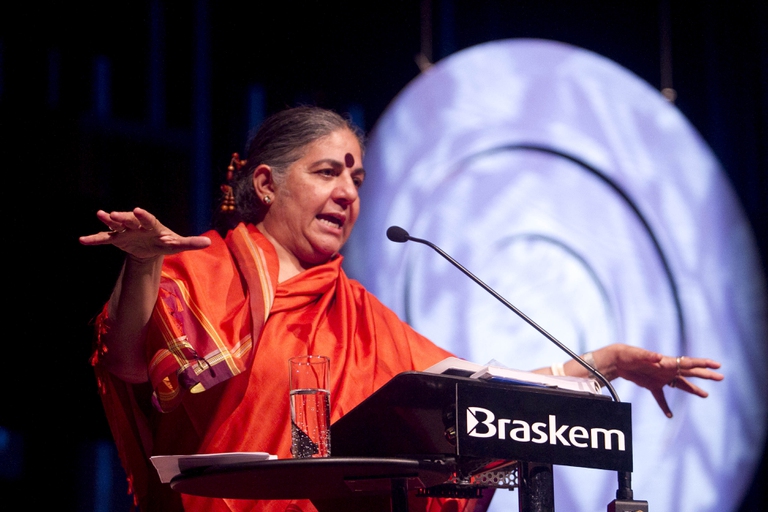
Dr. Vandana Shiva, what are the main problems of current food systems?What has changed since you began your battle?
My ecological struggles began against deforestation in the early 1970s.At that time the food issue was not a concern.Today, however, various problems related to industrial food systems have exploded:the ecological impact, the social impact on farmers, the health impact, the climate impact.
93 percent of biodiversity has been driven to extinction with monocultures and chemicals that have only one goal:destroy life.Herbicides kill plants, insecticides kill insects.Indigenous food has been replaced by junk food with 75 percent of chronic diseases being diet-related.Furthermore, in the 1970s there were no discussions on climate change, which began with the Rio de Janeiro summit in 1992.
What do you think of the latest decisions taken by the European Union regarding GMOs, pesticides and glyphosate?Should Europe still be a model for the rest of the world?
I remember that when we were negotiating the convention on biological diversity, it was Europe that sided with the countries of the South and in favor of biodiversity, Europe defended the biosafety protocol, Europe defended the sovereign rights of the peoples of the Third World:now Europe has changed.It has changed because companies like Monsanto, which used to influence American politics, now influence European politics.
GMOs and pesticides are actually the same issue.A handful of companies push the use of pesticides in agriculture.GMOs were created to resist pesticides, and now that they have failed, they are creating a new generation of GMOs.And the European Union wants to deregulate them.
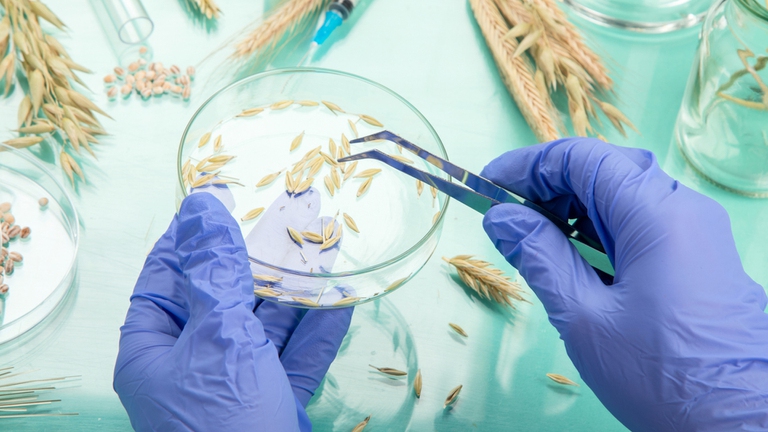
But these GMOs that they call 'new' are nothing more than the old greed to possess the seed by patenting it.It all boils down to pretending that the complexity of the genome is like a Lego set that you can play with by modifying it as you like.You don't edit a genome, it's not a cut and paste because every change you make, every gene change, leads to 1500 unpredictable changes in other parts of the genome and there is no evaluation on this.
We will give a free hand to those who brought the pesticides, to those who brought the GMOs and this is absolutely wrong, it is wrong that criminals are left free and that citizens are not protected by the government:it means governments are giving up their regulatory role.When governments abdicate their duty to protect the environment, citizens' health and their rights, they have given up their reason for existence.They have now become an extension of the poison cartel.
How is agriculture evolving in India?
India is plural, there are many indies, we are a very diversified country.We are the land from which organic agriculture spread to the world.We still have a lot of growth in organic and natural agriculture.On the other hand, India has two characteristics that make it the market of greed.The first is that it boasts the largest number of farmers in the world.One in four farmers in the world is an Indian farmer.And this is no coincidence, because we fought to remain farmers.We have resisted the disappearance of our farms.
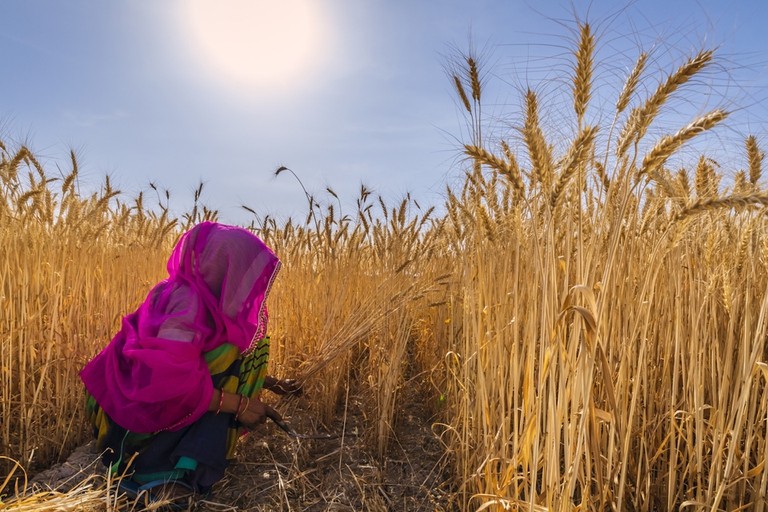
The second is that industrial agriculture is also growing.I fought against globalization and the World Trade Organization, and we defeated Cargill's attempts to dump wheat on us.We said we are sovereign and food sovereignty is freedom.Just today, however, I read the news that after years and years, we are going back to importing wheat because we have dismantled the system.
We must take care of the Earth, because without soil and biodiversity there is no food.Secondly, you have to take care of the farmers, otherwise you don't have food sovereignty.And thirdly, of course, we need to protect people's democratic right to have access to good, healthy food.These are the qualities of a good food system.These aspects have been overlooked and that is why we now import wheat.Precisely us, for whom bread in the 80s was a symbol of freedom.Bread will therefore be the test bed of the future.
You have always focused on the power of women, what is their added value in changing food systems?Is it a role that is more recognized today than in the past?
If you look at agricultural advertisements, even in India, there are always men.When Monsanto produced GMO cotton, all the ads were of American men with big tractors, big hats and big houses behind them.It ignores the fact that most of the world's farmers are women, producing food on small farms and tiny gardens.
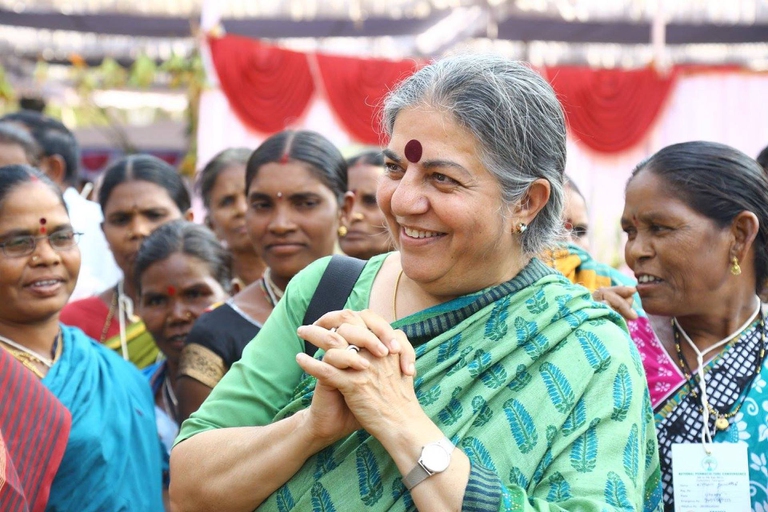
80 percent of what we eat is not what is traded in container ships:if you look at containers, you are looking at raw materials, if you look at local circular economies, you are looking at food. Women continued to demonstrate their familiarity with the Earth, they know how to make the most of biodiversity for health and nutrition.Before they were totally invisible, now their recognition is growing.And it is my job to make women's work increasingly visible.
The new generations are also important for change…
I am very happy that young people are deeply involved in redefining our place on Earth as part of the web of life, as protectors of biodiversity.Nature, women and youth have been colonized and instead we must have nature, women and youth as leaders for a new world.
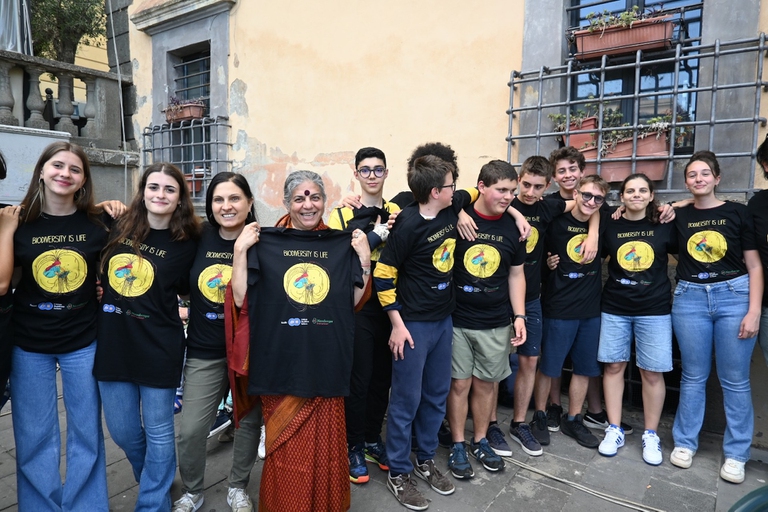
Our educational project "Biodiversity is life" aims to raise awareness among young people of the ecological implications of food production and to promote sustainable agricultural practices.Through visits to organic farms and practical activities, they become 'guardians of biodiversity' and are actively involved in the defense and valorization of agricultural diversity.
One of the latest battles in which it is involved is against the financialisation of nature and biodiversity credits:why does he define them as false solutions?
You know, biodiversity is life, biodiversity is the relationship between living systems, between the forest and the river, between the plant and the mycorrhizal fungi in the soil.When you take living systems and reduce them first to money, then to finance, and then you start gambling with finance, you have the same kind of situation that you had in 2008 with the Wall Street crash because of subprime housing mortgages.
There are three things wrong with the financialization of nature and biodiversity credits.The first is that it is a misleading ontology, money and life are not the same thing.Secondly, treating money and finance as living streams is actually destroying life.And the third reason why it is so wrong is that it is a way for the exploiters and the greedy to take over the system of life.
As a beautiful Native American saying went, only when you have killed the last fish and destroyed the last forest will you realize that you cannot eat money:we are reaching a stage where we are reducing everything to money that can feed nothing.After destroying part of the Earth, you take over someone else's land to restore biodiversity, but a rich rainforest is not the same as a eucalyptus plantation.It's just a monetary compensation.
Many see cultured meat as an alternative to traditional proteins to solve the problem of intensive farming and food security.What do you think of this opportunity?
I would not allow diets to be reduced to just the protein element, because proteins are one of the many other nutritional elements present in any food.And I wouldn't want real proteins to be equated with proteins produced in a laboratory. Ultra-processed and laboratory food is fake food, it is not food.Violates the definition of food;food should nourish the Earth, while this despoils the earth;food should nourish our body, while this violates the laws of our body.It is not an opportunity, because the opportunity must be for the last person on Earth, for the poor child;this is opportunism, a way for multinationals to make money.
What we need is to reclaim food as the right of all living beings because every being must eat.We forget that we too are part of the food cycle when we return to Earth becoming food for soil microbes.Instead we think outside the food system with a license to produce chemicals that destroy soil and processed foods that give us metabolic disorders.
Vandana Shiva, what are your feelings today after all these years of activism?How do you see the future?
Well, you know, the problems I started working with are still problems, except that after 50 years you learn so much more, you go so much deeper, you see more connections, and every little learning is one more reason why we have to protect the Earth and biodiversity, to be on the side of farmers, to protect the health of our children.And so yes, 50 years later I'm busier.
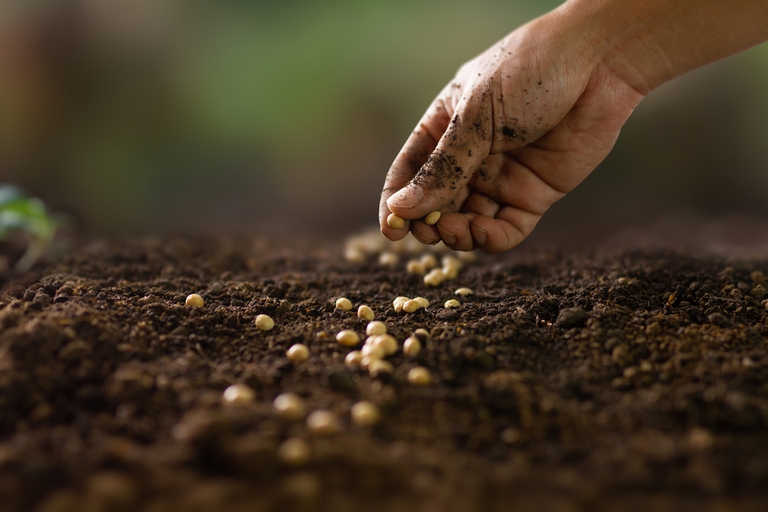
I have always known that Nature is alive but now, I discover more about how alive the seed is, how alive the soil is, how alive real food is, how alive our economies can be if we work together according to the laws of the Earth.And my hope comes from recognizing that we are part of the Earth.
Our work is a service to the Earth according to ecological laws and there is no limit to what can be done.The potential is enormous, we must free ourselves from the infrastructures that the machine of greed has created for its profit and relate to the creativity of the Earth, of human beings, of communities, of women, of indigenous people, of young children.The future awaits us with joy, hope, abundance and we can be part of it.
